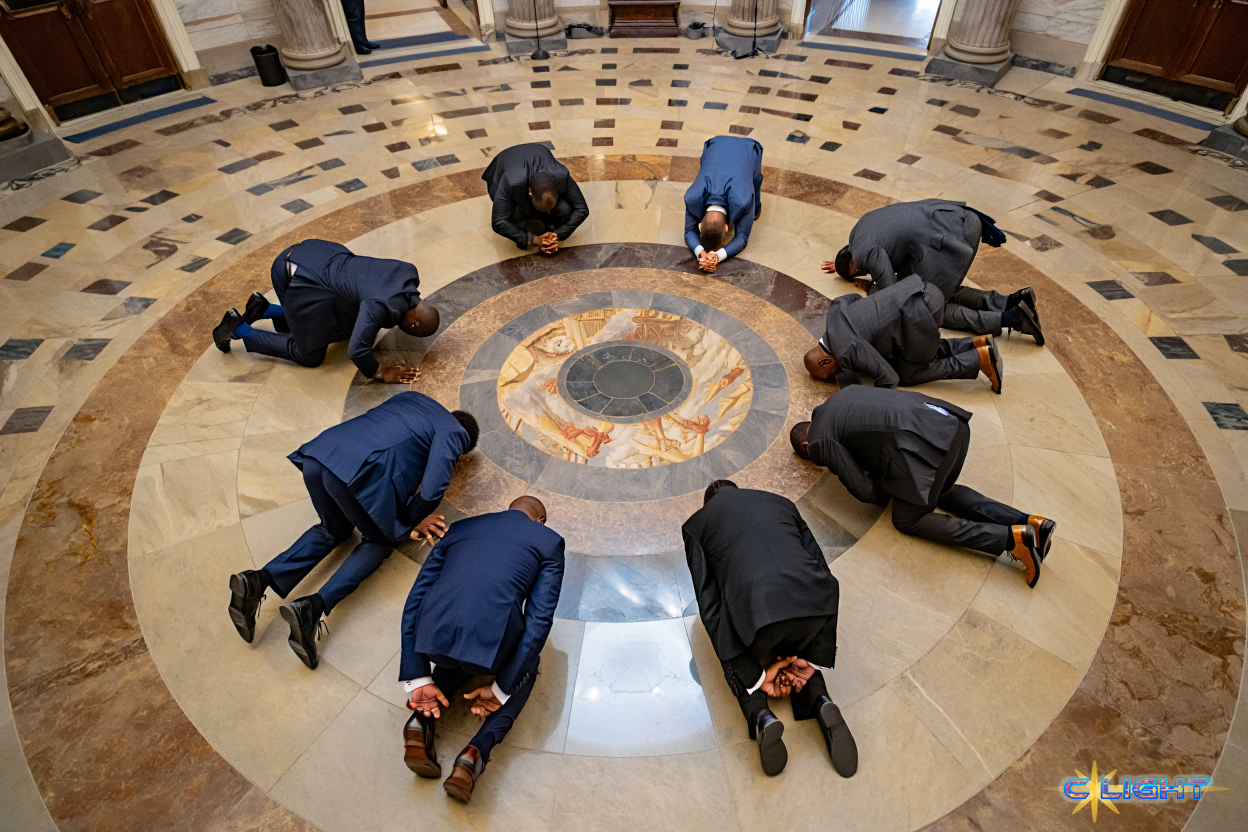The arrests of two distinct religious leaders by different federal agencies for disparate reasons have brought to the fore complex questions surrounding First Amendment protections in the United States. While both Rev. William Barber and Pastor Maurilio Amizael Ambrocio Mendez are men of faith, the circumstances of their recent detentions highlight varying interactions between religious expression, political protest, immigration enforcement, and the constitutional guarantees of speech, assembly, and the free exercise of religion under the shadow of policies enacted by President Felonious Punk’s administration.
Rev. Barber: Protest and Prayer in the Capitol
Rev. William Barber, a prominent social activist and founding director of Yale Divinity School’s Centre for Public Theology, was arrested alongside seven other clergy members by Capitol Police during a “Moral Monday” protest within the Capitol rotunda. The demonstration, which included a prayer vigil, was aimed squarely at derailing Felonious Punk’s proposed tax and spending bill, which Barber and his group, Repairers of the Breach, argue will devastate low-income Americans by slashing vital health and social services.
Wearing a robe emblazoned with “Jesus was a poor man,” Rev. Barber was addressing the gathering, lamenting that Congress begins its day with prayers while allegedly “preying on the poor,” when Capitol Police intervened. He was warned that his activity constituted an unlawful demonstration in the rotunda and was subsequently arrested after further warnings. This marked Barber’s third such arrest since April for similar protests.

The First Amendment issues in Rev. Barber’s case are direct and multifaceted:
- Freedom of Speech and Assembly: Barber and his cohort were undeniably exercising their rights to speak out against government policy and assemble in a significant public forum—the heart of U.S. democracy—to petition lawmakers.
- Free Exercise of Religion: The protest took the form of a “prayer vigil,” and Rev. Barber’s critique of the legislation was deeply rooted in his theological interpretation of Christian teachings on poverty and justice. He explicitly called the bill “the worst kind of evil” and referenced Jesus’s provision of “free healthcare.”
The government’s stated rationale for the arrests was the violation of regulations prohibiting demonstrations in the Capitol Rotunda. This raises the classic First Amendment question of balancing fundamental expressive and religious rights against the government’s legitimate interest in maintaining order and the proper functioning of its facilities through reasonable time, place, and manner restrictions. The repeated nature of the protests and arrests suggests an ongoing challenge to where those lines are drawn, particularly when the expression is both political and religious.
Pastor Ambrocio Mendez: Immigration Law and a Minister’s Detention
In a starkly different scenario, Pastor Maurilio Amizael Ambrocio Mendez, a Guatemalan pastor who has resided in the U.S. for over two decades, was detained by U.S. Immigration and Customs Enforcement (ICE) agents in Tampa, Florida. His detention occurred during one of his annual ICE check-ins, a requirement under a court-issued “stay of removal” that had allowed him to remain in the country despite a prior deportation order from 2006 and a subsequent illegal re-entry. The Department of Homeland Security (DHS) also noted a 2012 conviction for driving without a license.
Pastor Ambrocio Mendez, father of five U.S. citizen children, runs a small handyman business and is described by his family as deeply involved in his church and community, known for preaching even while now in detention. His arrest comes amid a broader crackdown on immigration by Felonious Punk’s administration, which has vowed to remove millions of immigrants without legal status.
The First Amendment implications in Pastor Ambrocio Mendez’s case are more indirect but still warrant examination:
- Free Exercise of Religion: Unlike Rev. Barber, Pastor Ambrocio Mendez was not detained for an act of protest or specific religious expression at the moment of his check-in. His detention is based on established immigration law and his past history. However, his role as a pastor is a significant aspect of his life and his contribution to his community. The crucial First Amendment question here is not whether his religious status grants him immunity from generally applicable immigration laws, which it typically does not under the Free Exercise Clause if the laws are neutral, but rather the broader impact of such enforcement actions.
- Impact on Religious Community: The detention and potential deportation of a pastor inevitably affect the religious life and free exercise rights of his congregation, who are deprived of their spiritual leader. While this indirect burden is a consequence of enforcing immigration law, it raises questions about the societal costs and the potential chilling effect on religious leaders within immigrant communities who might fear similar actions despite their community roles.

Contrasting Constitutional Dimensions
The cases of Rev. Barber and Pastor Ambrocio Mendez illuminate how First Amendment issues can manifest in profoundly different ways when religious figures engage with state power. Rev. Barber’s case is a clear instance of conflict over expressive rights in a public forum, where the religious nature of the protest adds a significant dimension to the speech and assembly claims. His actions directly challenge government policy through explicit protest and civil disobedience.
Pastor Ambrocio Mendez’s situation, conversely, underscores that religious vocation does not ordinarily shield an individual from the enforcement of neutral laws of general applicability, such as those governing immigration. While his faith and ministry are central to his identity and his community’s life, the legal basis for his detention lies within the framework of immigration statutes and his personal immigration history. The First Amendment concerns are more about the secondary effects on his congregation and the broader climate for religious leaders serving immigrant populations under stringent enforcement regimes.
Both situations, occurring under an administration known for its strong stances on fiscal policy and immigration, force a continued reckoning with the scope and limits of First Amendment freedoms, whether in the context of active dissent in the nation’s capital or the quieter, but no less impactful, enforcement of federal law in communities across the country.
Discover more from Clight Morning Analysis
Subscribe to get the latest posts sent to your email.










